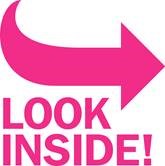We all have hidden weaknesses. These are obstacles that we are probably not aware of but that affect us in a big way when we are in front of a prospect. They are not obvious to those around us and they don’t show up on an interview. So what are they? They take many forms but the most common is a belief we may have about the way things are in the world or the way things work in our industry or in sales in general. For example if you believe that you have to call on purchasing agents first before you can contact the end user of your product then that belief will affect your ability to sell and learning sales techniques to help you deal with the end user will be of no help. Maybe you believe that it is ok for the prospect to think about your proposal for a few days even after they committed to making a decision when you delivered it. If that is true, then you will have a low closing rate and closing techniques will be useless until you overcome that self-limiting belief.
Sometimes hidden weaknesses are more psychological. For example if you have a strong need for approval from people then you will shy away from using techniques that you believe might jeopardize your relationship. You will avoid asking any question or making any statement which you perceive to be aggressive because the prospect may not approve and you need the approval.
So how do we know what our weaknesses are if they are “hidden”. Well you can contact me and we can test you for them. But another way is to pay attention to what you do or say and what avoid doing or saying. Ask yourself why you are doing it or saying it. then ask why that is important and then try to compare what you are doing to what the more successful people are doing. Ask yourself what would happen if I tried something different. Listen to your self-talk. What you are saying to yourself will go a long way to identifying your hidden weaknesses. The good news is that if you are able to identify and overcome just one there will be a quantum leap in your sales effectiveness.


 Excuses kill personal growth. Personal growth happens when we overcome a self-limiting belief (like people buy based on price) or a hidden weakness (like a high need to be liked). When you make an excuse for lack of performance (our prices are too high, our software is too slow) then you are not focusing your energy where it needs to be focused. You are looking outside and not inside. The biggest problem is that by not looking inside yourself you will never uncover the obstacles that are holding you back. So even if the software gets faster, and your prices get lower, your performance will only increase marginally and will only last as long as those conditions persist. You will be like a basketball player who can only score when guarded by someone shorter and slower than him. You want to be more like the top basketball players who work on their game all summer, so that when the season starts they can score from anywhere on the court no matter who is guarding them.
Excuses kill personal growth. Personal growth happens when we overcome a self-limiting belief (like people buy based on price) or a hidden weakness (like a high need to be liked). When you make an excuse for lack of performance (our prices are too high, our software is too slow) then you are not focusing your energy where it needs to be focused. You are looking outside and not inside. The biggest problem is that by not looking inside yourself you will never uncover the obstacles that are holding you back. So even if the software gets faster, and your prices get lower, your performance will only increase marginally and will only last as long as those conditions persist. You will be like a basketball player who can only score when guarded by someone shorter and slower than him. You want to be more like the top basketball players who work on their game all summer, so that when the season starts they can score from anywhere on the court no matter who is guarding them.
